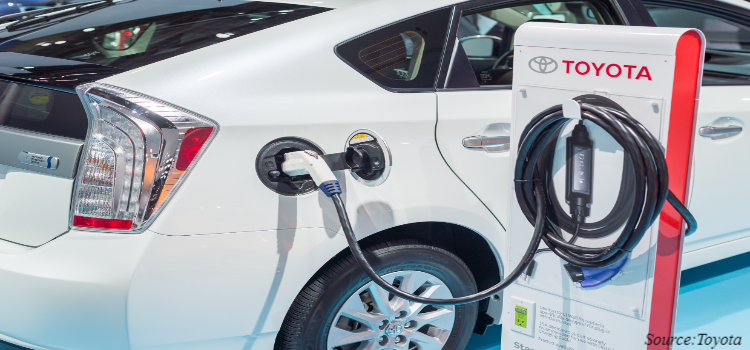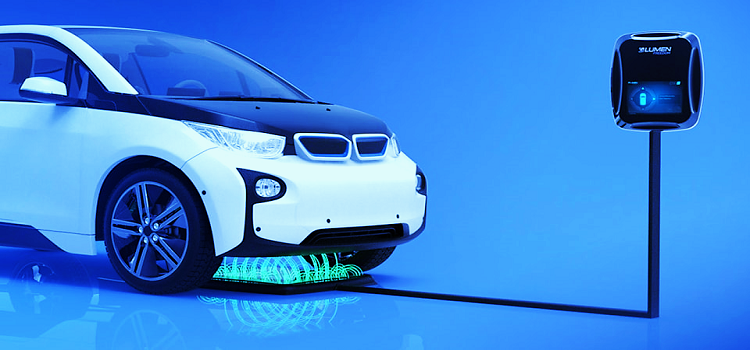
Finland Electric Vehicle (EV) Charging Market by Charging Type (Off-Board Top-Down Pantograph, On-Board Bottom-Up Pantograph, and Charging Via Connector), Charging Voltage Level (Level 1 (<3.7 KW), Level 2 (3.7–22 KW), and Level 3 (Above 22 KW)), Charger Type (Slow Charger and Fast Charger), Vehicle Charging (AC, DC, Inductive Charging), Application (Commercial and Residential), Commercial (Commercial Public EV Charging Stations, On-Road Charging and Commercial Private EV Charging Stations), Installation Type (Portable Charger and Fixed Charger), IoT Connectivity (Non-Connected Charging Stations and Smart Connected Charging Stations (Networked)) and Charging Standard (CCS, CHADEMO & GB/T, Type 1/Normal Charging, Tesla Super Charger, Type-2, and Level 3) – Opportunity Analysis and Industry Forecast 2023–2030
Industry: Automotive & Transportation | Publish Date: 25-Sep-2023 | No of Pages: 91 | No. of Tables: 72 | No. of Figures: 41 | Format: PDF | Report Code : N/A
Market Definition
Finland Electric Vehicle (EV) Charging Market was valued at USD 42.43 million in 2022, and is predicted to reach USD 393.63 million by 2030, with a CAGR of 32.8% from 2023 to 2030. Electric vehicle chargers are devices that determine the rate at which energy is supplied to a vehicle's battery per unit of time. They establish the connection between plug-in electric vehicles and electrical outlets for recharging the vehicle's battery. These chargers are pivotal in delivering the necessary energy to EVs and facilitating their operation.
Charging stations cater to a range of electric vehicles, including full electric cars, neighborhood EVs, and plug-in hybrids, enabling them to draw power from an electrical source. Some charging stations come equipped with advanced features such as smart meters, cellular connectivity, and network access, enhancing user convenience.
Charging of electric vehicles occurs through different levels, categorized as level 1, level 2, and level 3. The higher the charging level, the faster the process, resulting in more power delivered to the vehicle, reducing charging time significantly. Transitioning to electric vehicles plays a crucial role in mitigating the release of toxic gases and reducing carbon emissions, addressing the pressing issue of environmental pollution stemming from transportation.
Commercial spaces have experienced higher EV charging penetration compared to residential areas, while public charging infrastructure, featuring ultra-fast charging capabilities, benefits long-distance travelers. Nevertheless, residential EV chargers hold substantial growth potential due to their affordability and convenience, making them an appealing choice for those seeking convenient and cost-effective electric vehicle charging solutions.
Environmental Awareness Fuels Rapid Growth in the Electric Vehicle (EV) Market and Charging Infrastructure
The remarkable growth of the electric vehicle (EV) market is primarily propelled by mounting environmental concerns related to climate change. As awareness of the adverse impacts of traditional combustion engine vehicles on the environment intensifies, an increasing number of individuals are choosing EVs as an eco-friendlier transportation alternative.
This surge in EV adoption is driving the demand for robust EV charging infrastructure to meet the needs of a burgeoning EV owner base, thus spurring the growth of the EV charging market. This symbiotic relationship between environmental consciousness and EV adoption underscores the crucial role EVs play in mitigating climate change and transitioning toward sustainable mobility solutions.
For instance, over the past ten years, Finland has seen a considerable increase in the number of electric vehicles on Finnish roads. Around 77 thousand hybrid vehicles and almost 22.9 thousand electric vehicles were registered in the nation in 2021.
Strategic Initiatives by EV Charging Market Players Drive Growth in Finland
The growth of the EV charging market in Finland has been driven by key players who have engaged in strategies such as partnerships and product launches. These actions have significantly contributed to the expansion of the market. For instance, in March 2022, Electreon and Destia partnered to develop wireless EV charging in Finland. The businesses believed that wireless charging and wireless Electric Road System (ERS) initiatives in Finland have a lot of potential for application in a variety of vehicles, including taxis, delivery vans, buses, and vans. ERS deployments can also aid in reducing greenhouse gas emissions.
Also, in October 2021, Kempower launched a partnership with Gilbarco Veeder-Root to offer EV charging solutions. The DC rapid charging systems from Kempower are designed to scale as the number of EVs on the road increases. All forms of EVs, including passenger cars, buses, off-road vehicles, commercial service fleets, and maritime vessels, can use the company's high-quality charging systems.
Furthermore, in June 2021, Neste is piloting its first EV charging service with Niemi Services which aims to launch the service in Finland. This development will help consumers to reduce their greenhouse gas emissions.
Fast Chargers' High Initial Setup Costs Hinder the EV Charging Market Growth
The growth of the EV charging sector could face challenges due to the lack of incentives and concerns about the high installation costs. A significant obstacle to expanding this industry is the substantial upfront expense linked to level 3 and ultra-fast chargers. While level 1 and level 2 chargers can take anywhere from 6 to 16 hours for a full charge, consumers are accustomed to refuelling their traditional fossil fuel vehicles in just 5 to 7 minutes.
This has led to a strong market demand for fast chargers capable of recharging EVs in under 30 minutes. However, initial costs for level 3 charging stations may deter those considering the switch to EVs, especially because longer charging times could disrupt their already busy schedules.
Surging Adoption of Vehicle-to-Grid (V2G) EV Charging Stations in Finland Unlocks Promising Opportunities
Vehicle-to-grid (V2G) technology enables a two-way exchange of electrical energy between plug-in electric vehicles (EVs) and the power grid. With V2G, EVs can store excess electricity and supply it back to the grid, enhancing grid functionality and providing added value for EV owners.
This innovation has simplified EV charging, making electric vehicles an increasingly popular transportation choice. Consequently, the entire market for charging stations plays a critical role in connecting EVs to the grid and facilitating their charging process. Enel Energia S.p.A. installed two V2G EV charging stations at the Italian Institute of Technology's Genoa headquarters as part of the MOV-E project, sponsored by Nissan. The Italian Institute of Technology received two Nissan LEAF electric vehicles and the Glide app management platform from Nissan. The collaboration between Enel and Nissan signifies a transformative approach to sustainable transportation.
As a result, manufacturers have a great chance with the V2G charging technology because it is predicted to change the EV industry and determine how EVs will be charged in the future. Although V2G infrastructure is more beneficial than smart charging, installing V2G charging stations has a hefty up-front cost. Manufacturers of EV connectors are projected to have opportunities to produce sophisticated connectors to withstand electrical architecture due to the predictable and anticipated expansion of V2G technology.
Competitive Landscape
The Finland Electric Vehicle (EV) Charging industry includes several market players such as ABB Ltd., ChargePoint, Inc, Tesla Inc, Shell Recharge Solutions, Star Charge, TELD, Siemens, BYD, EVgo, and Hyundai Motor Company.
KEY BENEFITS
-
The Finland Electric Vehicle (EV) Charging market report provides a quantitative analysis of the current market and estimations through 2023-2030 that assists in identifying the prevailing market opportunities to capitalize on.
-
The study comprises a deep dive analysis of the market trend including the current and future trends for depicting the prevalent investment pockets in the market.
-
The information related to key drivers, restraints, and opportunities and their impact on the market is provided in the report.
-
The competitive analysis of the market players along with their market share in the Finland Electric Vehicle (EV) Charging market.
-
The SWOT analysis and Porter’s Five Forces model are elaborated in the study.
-
Value chain analysis in the market study provides a clear picture of the stakeholders’ roles.
FINLAND ELECTRIC VEHICLE (EV) CHARGING MARKET KEY SEGMENTS
By Charging Type
-
Off-Board Top-Down Pantograph
-
On-Board Bottom-Up Pantograph
-
Charging Via Connector
By Charging Voltage Level
-
Level 1 (<3.7 KW)
-
Level 2 (3.7–22 KW)
-
Level 3 (Above 22 KW)
By Charger Type
-
Slow Charger
-
Fast Charger
By IOT Connectivity
-
Non-Connected Charging Stations
-
Smart Connected Charging Stations (Networked)
By Vehicle Charging
-
AC (Normal Charging)
-
DC (Super Charging)
-
Inductive Charging
By Application
-
Commercial
-
Residential
By Commercial
-
Commercial Public EV Charging Stations
-
On-Road Charging
-
Parking Spaces
-
Destination Chargers
-
-
Commercial Private EV Charging Stations
-
Fleet Charging
-
Captive Charging
-
By Installation Type
-
Portable Charging
-
Fixed Charging
-
Wall Mount
-
Pedestal Mount
-
Ceiling Mount
-
By Charging Standard
-
CCS
-
CHADEMO & GB/T
-
Type 1/Normal Charging
-
Tesla Super Charger
-
Type-2
-
Level 3
REPORT SCOPE AND SEGMENTATION:
|
Parameters |
Details |
|
Market Size in 2022 |
USD 42.43 Million |
|
Market Volume in 2022 |
6 Thousand Units |
|
Revenue Forecast in 2030 |
USD 393.63 Million |
|
Growth Rate |
CAGR of 32.8% from 2023 to 2030 |
|
Analysis Period |
2022–2030 |
|
Base Year Considered |
2022 |
|
Forecast Period |
2023–2030 |
|
Market Size Estimation |
Million (USD) |
|
Growth Factors |
The presence of EV charging players. The environmental awareness. |
|
Companies Profiled |
10 |
|
Market Share |
Available for 10 companies |
|
Customization Scope |
Free customization (equivalent up to 80 working hours of analysts) after purchase. Addition or alteration to country, regional, and segment scope. |
|
Pricing and Purchase Options |
Avail customized purchase options to meet your exact research needs. |
KEY PLAYERS
-
ABB Ltd.
-
ChargePoint, Inc
-
Tesla Inc
-
Shell Recharge Solutions
-
Star Charge
-
TELD
-
Siemens
-
BYD
-
EVgo
-
Hyundai Motor Company




 Speak to Our Analyst
Speak to Our Analyst


































